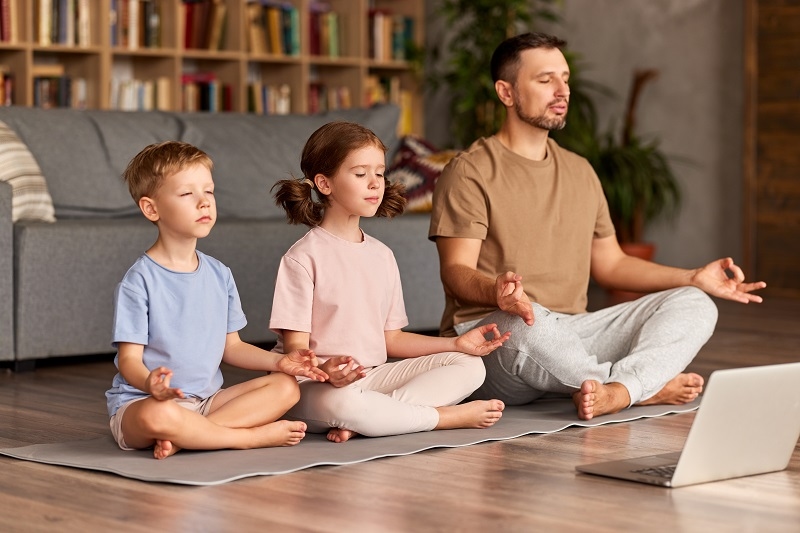
Parenting may be the most satisfying thing in the world, yet it is often criticized as one of the most exhausting experiences. The day-to-day life of parents can be quite overwhelming, so many of them will confess to being "running on empty". It is usually the case that while parents are very concerned about their children, their own needs tend to become so insignificant that they are almost invisible. Constructing a parent self care habit that is manageable and comfortable can essentially change not only your health but also your happiness.
Self-care comprises of small yet meaningful actions which help the parents recuperate from the daily tedium, keep up with the stress, and be more available to the family. Let's try to find out ways of creating a daily schedule that actually fits a real-life routine instead of just being a paper schedule.
A lot of parents are plagued by the guilt that comes with the thought of taking time out just for themselves. They often see self-care as selfish when, actually, it plays a major role in keeping everything balanced. If they deprive themselves of rest and emotional food, parents become people who are overworked, annoyed, and maybe also sick, in the long run, without even knowing it. A regular parent self-care routine gives you the benefit of:
By thinking of self care as a must-have rather than a nice-to-have, parents not only get the benefit of the positive mindset trickledown effect in the whole family including the kids.
Here’s how you can build a simple parent self care routine:
Parents mostly assume that self-care will mean long periods of time away from the family, yet such an approach is far from being practical in most cases. A simple parent self-care plan is mainly about small daily choices. These may involve:
These little deeds might not be very noticeable, but in fact, they are quite powerful. Slowly but surely, and they don't even have to be in a daily manner, they are setting the stage for living a healthy lifestyle, and at the same time, not overloading their already busy schedule.
Consistency is more important than the amount of time or energy you put into it, i.e., you need consistency more than intensity in caring for your daily wellness as a parent. Wellness building for the parents on a daily basis revolves around this. The integration of daily routines that you can adopt and that complement each other, so they feel natural. As an illustration:
These habits allow you to see the pattern of their occurrence. Even these short, regular habits cannot only increase our physical health but also improve our emotional health.
Primarily, parents are essentially focused on their physical needs, but their emotional well-being is often left behind. Stress, worry, and guilt might be only a few reflections of this wearisome picture, yet they don't have to dominate the daily life of parents. A few emotional self-help tips may indeed render parents more resourceful in managing the situation:
Emotional balance is as important as eating healthy or exercising. A strong and secure nature inside allows parents to face the challenges with more stillness and faith.

Parents have trouble with the whole idea of balance in their lives. They picture a day of life being divided into equal parts of work, family, and personal time, but life is hardly ever that way. The trick is to go for a realistic parent balance which does not make self-care the exception but fits into the everyday routine without creating any extra stress.
Instead of a mother or father planning to do an hour-long workout, he/she could come up with the idea of going for a 15-minute walk pushing the stroller. Rather than a full day of rest, a parent may be reading quietly for ten minutes before sleeping and enjoy it.
Self-care becomes less difficult when the family knows how significant it is. Teaching children about routine, respect for quiet time, and shared responsibilities is good for all the members of the family. An illustration of this would be:
When family members collaborate, family caregivers wellbeing improves. Parents get to be in the position to receive help rather than being overstretched, at the same time children acquire valuable life skills.
Every family is unique, so it is safe to say that a one-size-fits-all approach is not applicable to parents when it comes to self-care routines. Those are the first steps for your parent self-care routine:
Those little conversions in your life accumulate over time and become a daily habit and get you to feel the same way you used to feel.
For parents, self-care is sometimes a hard thing to do, even if they have the best of intentions. Below are some of the major barriers to self-care and their solutions:
These changes make people focus on the journey towards perfection, not the perfection itself.
Your parent self-care routine does not have to be a complete transformation of your life. Those are little, but highly effective, practical steps that would lead to improvement in your health, mood, and resilience.
Parents can adopt a lifestyle that keeps them energized when they are not wrapped up in coping with the challenges of parent self-care by just concentrating on that one thing, choosing to live a life rooted in daily wellness for parents, and following the practice of emotional self-care tips.
This content was created by AI